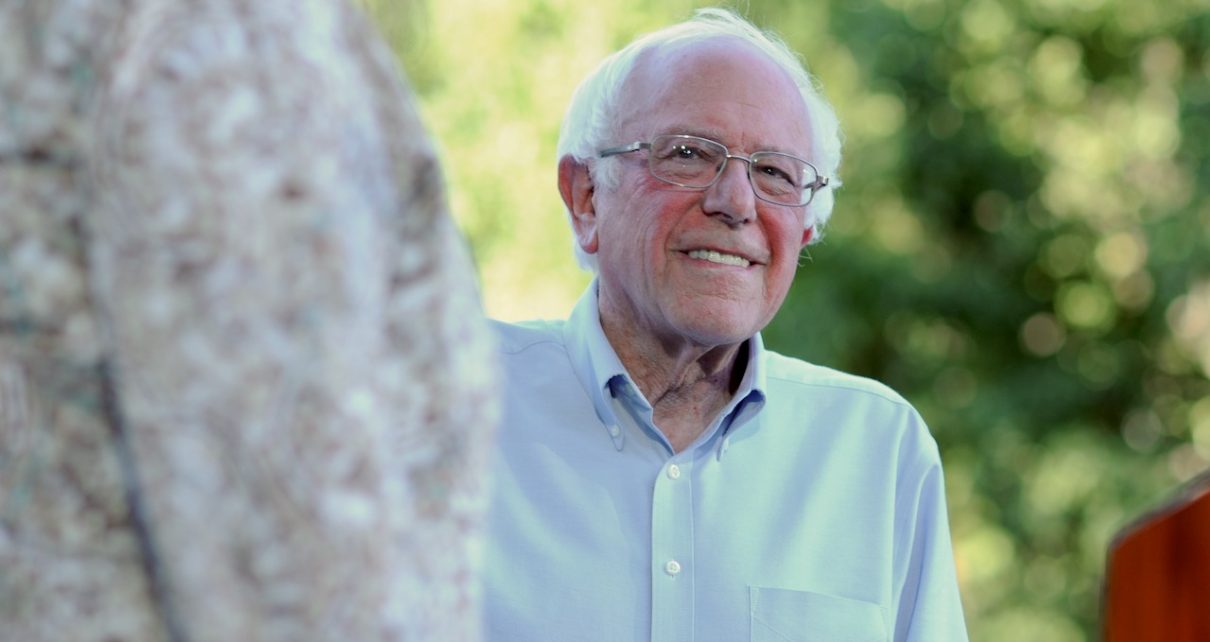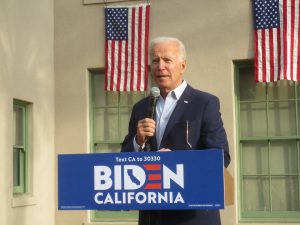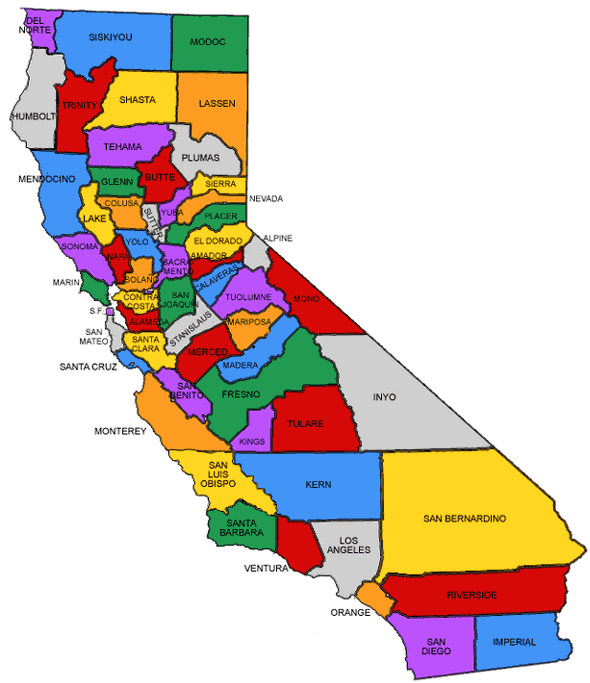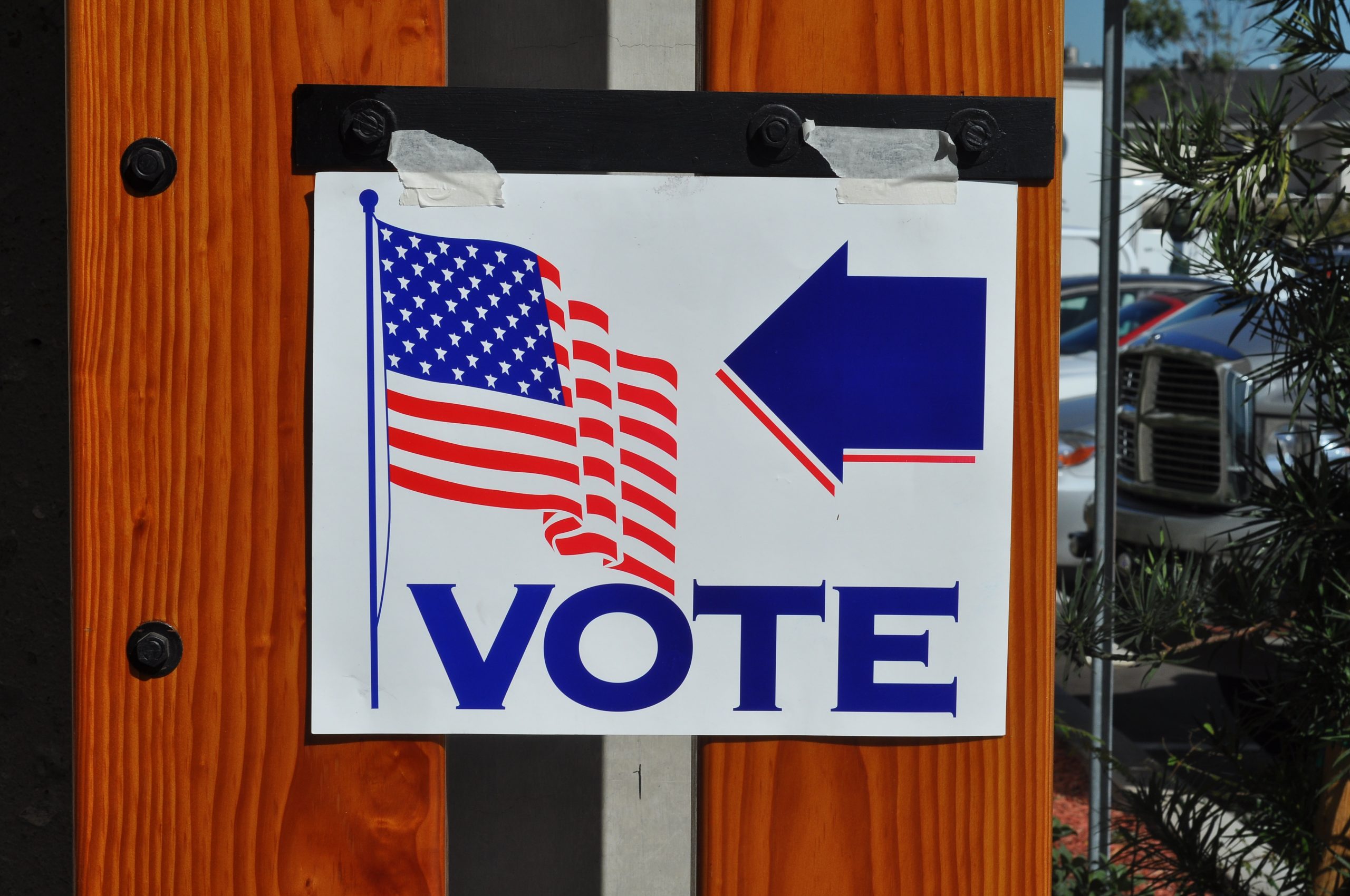
Vermont Senator Bernie Sanders. (Kevin Sanders for California Globe)
How Bernie Won California
A number of different factors gave Sanders his silver lining victory on Tuesday
By Evan Symon, March 4, 2020 5:07 pm
Bernie Sanders by and large won the California Democratic primary last night, and is currently 300,000 more votes ahead than Joe Biden, currently sitting in second place.
With Biden winning the majority of states on Super Tuesday and Bernie Sanders only winning 4, including California, it seems odd that Sanders would take the state away from Biden, Bloomberg, and all the other candidates who fought extremely hard in the primary. So how did Sanders manage to keep the state when Biden steamrolled over Sanders in other states like Texas and Massachusetts? The California Globe takes a closer look.
Moderates were split

A large number of moderate and left-center Democrats were in play last night. Former Vice President Joe Biden and former New York City Mayor Michael Bloomberg were the most prominent of the moderates getting a respective 25% and 14% of the vote. Senator Elizabeth Warren (D-MA), who played being in the middle between Sanders, also got a fair 12% chunk. This left many voters with Senator Bernie Sanders (I-VT), whose far-left ideology appealed to the majority of California Democrats and received over a third of the total vote with 34%.
As Bloomberg has since joined Biden, a vast majority of his votes would have likely gone his way. Combined, that’s 39%, and that’s a Biden win. But Bloomberg’s media blitz did the damage, picking up voters before South Carolina who saw Biden as down and out. Bloomberg also stayed strong until Super Tuesday thanks to the ads. And that election day split elevated Sanders to victory.
Early voting
Early voting also culled down the moderate vote even more. Former South Bend, IN Mayor Pete Buttigieg got around 5-7% of the vote largely due to early voting, with a few points also going to Minnesota Senator Amy Klobuchar (D-MN), Philanthropists Tom Steyer and Andrew Yang, and even Hawaiian Congresswoman Tulsi Gabbard (D-HI), the latter of which still hasn’t dropped out.
None of these candidates came close to being close to Bernie on liberal ideology, with many of the candidates above having since supported Joe Biden. It may have only been about 10% of the vote, but that was another 5-10% that could have gone Biden’s way and could have possibly given him enough to win.
California far left supporters
The number of far left supporters is generally higher in California, and hasn’t really gone down since around 2004. With the higher than usual number of far left voters than other states, Bernie supporters simply outmatched everyone else. Biden won in the South, Texas, and elsewhere due to the number of moderates in those areas, especially in suburbs. Bloomberg also won American Samoa, but he was also one of the few candidates to actively put ads there.
But look where Bernie won Tuesday. Vermont, his home state that’s also going farther and farther left. Colorado, a state that mirrors California with hard left urban centers gradually turning red into the more rural areas, albeit with a few redder cities here and there. And Utah, which was fractured due to spit moderates and a Bloomberg blitz much like California was. The far left was a huge voting bloc in these states. And with nearly a third of California’s Democratic party being part of this contingent, Sanders had an unusually strong base here.
The Youth Vote
While Sanders has had problems this election in getting the youth to come out to vote for him, in California it’s an interesting factor. Millennial and Generation Z voters aren’t nearly as resistant of more socialist reforms as older generations because they weren’t around for the Cold War when socialism and communism were much more widespread. The socialist reforms many younger voters see come from places such as Canada and European democracies where policies such as universal healthcare and greater unemployment protections have been made to seem ideal. It’s not Soviet Russia breadlines, it’s getting healthcare.
And with effects of the great recession, such as wage stagnation and higher rents, still going on, socialist policies seem more and more ideal to them because of higher and higher costs. Naturally, not all younger people believe this, and, similarly, many older people do believe in more socialist measures in California as well. But, by and large, it is generational, with many younger people seeing socialism on par with capitalism in terms of support. And that’s who Bernie has been getting. And since California has been seeing increasing youth vote numbers, with the rest of the US also improving, Sanders ironically capitalized on it.
After California
Sanders will have a hard time next week, although states like Washington should be a gimme for him. Biden has the momentum now though, so states in play like Michigan, which Bernie won in 2016 in a shock win against Clinton, could change again to Biden.
California wasn’t a fluke for Sanders, but with a dwindling number of candidates, Biden could make the Sanders California win his last hurrah in the election.
- Bill to Require Law Enforcement Disclosure if AI Was Used To Help Write Reports - August 7, 2025
- Gov. Newsom Files FOIA Request To ‘Expose True Cost’ Of L.A. Federal Troop Deployment for Anti-ICE Riots - August 6, 2025
- California Redistricting: How Newsom’s Plan Will Demolish Hard Fought GOP Gains - August 6, 2025





One thought on “How Bernie Won California”